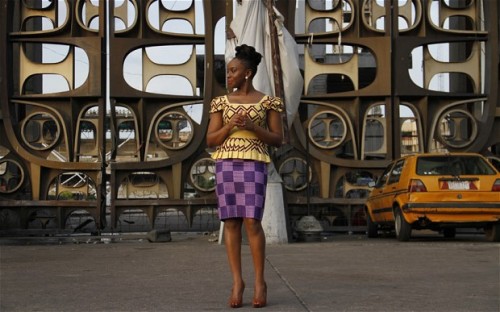
The Nigerian writer Chimamanda Ngozi Adichie’s new book, Americanah, is a story of romance, race and the politics of hair
Americanah, Chimamanda Ngozi Adichie’s new book, is the story of Ifemelu, a young Nigerian who travels to America to study and stays there for 13 years before deciding to return to Lagos. The book is an atmospheric and vibrant love story – the love between Ifemelu and Obinze, the high-school sweetheart she leaves behind, the love between Ifemelu and her American boyfriend, the love she has for her young cousin Dike, whom she looks after in America, and the love of her homeland, Nigeria. It is also a novel about race and immigration and what it feels like to be black in America.
But the book’s biggest love affair seems to be Adichie’s enduring relationship with hair. Hairstyle is such a constant presence in the book that not a page goes past without a mention of it: straight weaves, box braids, cornrows, dreadlocks, afros, twists, raucous curls, kinky coils and TWAs (teeny weeny afros). Not to mention texturisers, relaxers, oils, pomades and hair butter. No character in her book gets away without having their hairstyle mentioned, and many are defined by it. And not just the girls. ‘The greying hair on the back of his head was swept forward, a comical arrangement to disguise his bald spot.’ ‘A dreadlocked white man sat next to her on the train, his hair like old twine ropes that ended in a blond fuzz.'
As Chimamanda Adichie, 36, sits before Telegraph in a hotel in London: contained, amused, sexy and intellectual, her own hair is succinctly tethered, but it looks as if, were she to free it, it would be ready to spring into action at any time.
‘I am obsessed with hair!’ she exclaims, before settling happily into a long session on the subject. ‘As you can see I have natural, negro hair, free from relaxers and things. My hair story started when I was a baby. My mother had boys and she desperately wanted a girl, a girl with hair. I came out with a lot of hair and she was thrilled. As I was growing up she would do things to my hair but what I loved the most was when she stretched it with a hot comb. I was terrified too, because when the comb touched your ear it was so painful, but I loved the idea that my hair would then be straight. So when I was three years old I already had the idea that straight hair was beautiful and my hair was ugly.’
In secondary school her hair had to be natural or in braids. Even now, Adichie says, her two nieces who go to school near Lagos have to have their hair cut short, like boys. (‘They are continually texting me, to ask me to buy them a wig. I believe strongly that we should be proud of our hair, but if my 15-year-old nieces want a straight wig, I’ll buy them a straight wig! Life is short.’)
#Telegraph.co.uk



 This is a list of things that will make you look bigger. I’ve tried to concentrate of things that we unintentionally wear not realizing the effect they will have.
This is a list of things that will make you look bigger. I’ve tried to concentrate of things that we unintentionally wear not realizing the effect they will have. 

